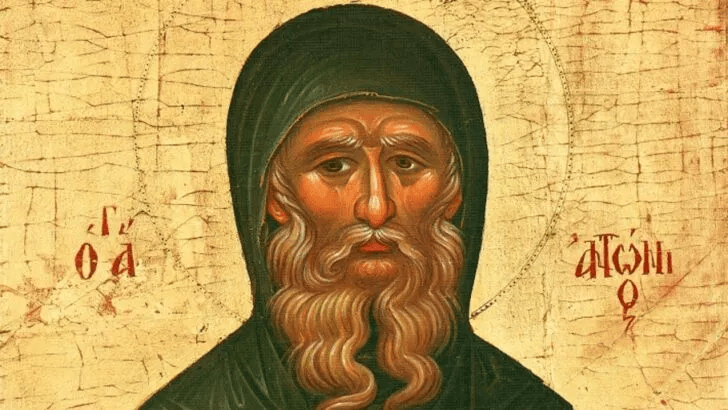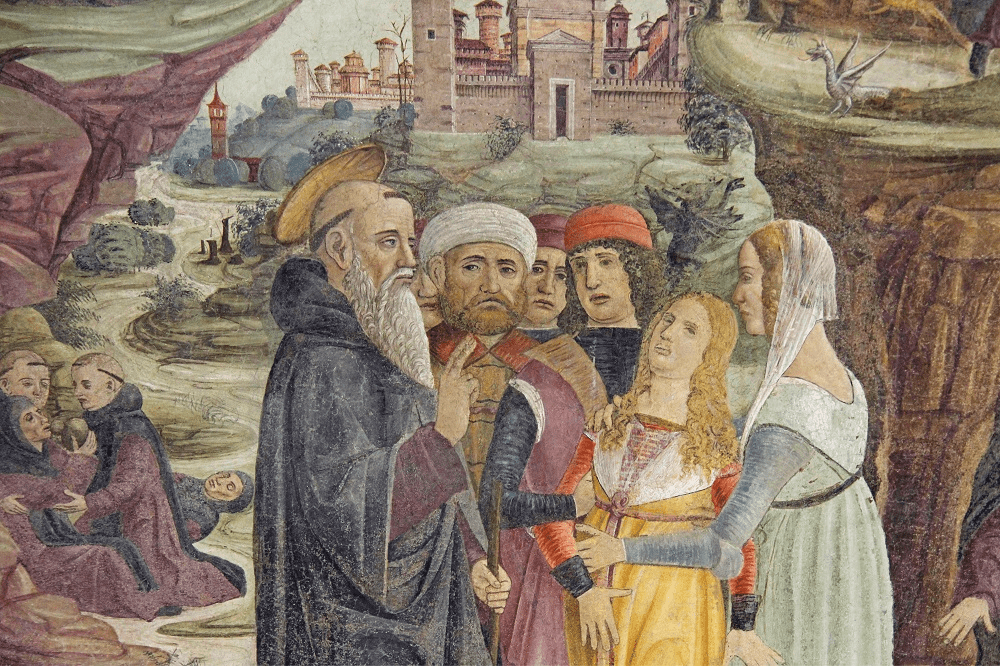Introduction
St Antony of Egypt (251–356), also known as Anthony the Great, is widely revered as the Father of Christian Monasticism. His radical devotion to prayer, solitude, and spiritual discipline laid the foundations for the monastic life that continues to inspire believers worldwide.
Early Life & Calling

Born to wealthy Coptic Christian parents in Qiman al-Arus, Egypt, Antony was deeply moved by Christ’s words: “Go, sell all that you have…” After the death of his parents, he distributed his inheritance to the poor and began his lifelong journey of spiritual transformation.
The Desert Years
Antony retreated into the Eastern Desert, first living near tombs, and later in complete seclusion at Mount Pispir. There, he endured intense spiritual warfare, resisting demonic temptations with unwavering prayer, fasting, and silence.
Legacy of Monasticism
Though he sought solitude, Antony’s spiritual radiance attracted many followers. He eventually organized one of the first monastic communities, offering guidance to those seeking holiness. His simple, disciplined way of life became the model for future Christian monastic traditions.
Spiritual Teachings
Antony emphasized:
- Silence & Stillness for hearing God
- Detachment from worldly possessions
- Inner Purity as a path to holiness
Biography
His life was documented by St Athanasius, whose biography, The Life of Antony, spread across the Roman Empire, shaping early Christian spirituality.
Relevance Today
Abbot Antony's example reminds us that holiness is not reserved for the elite—it is a call to all who seek God wholeheartedly. His values of simplicity, prayer, and resistance against temptation remain deeply relevant in a world full of distractions.

